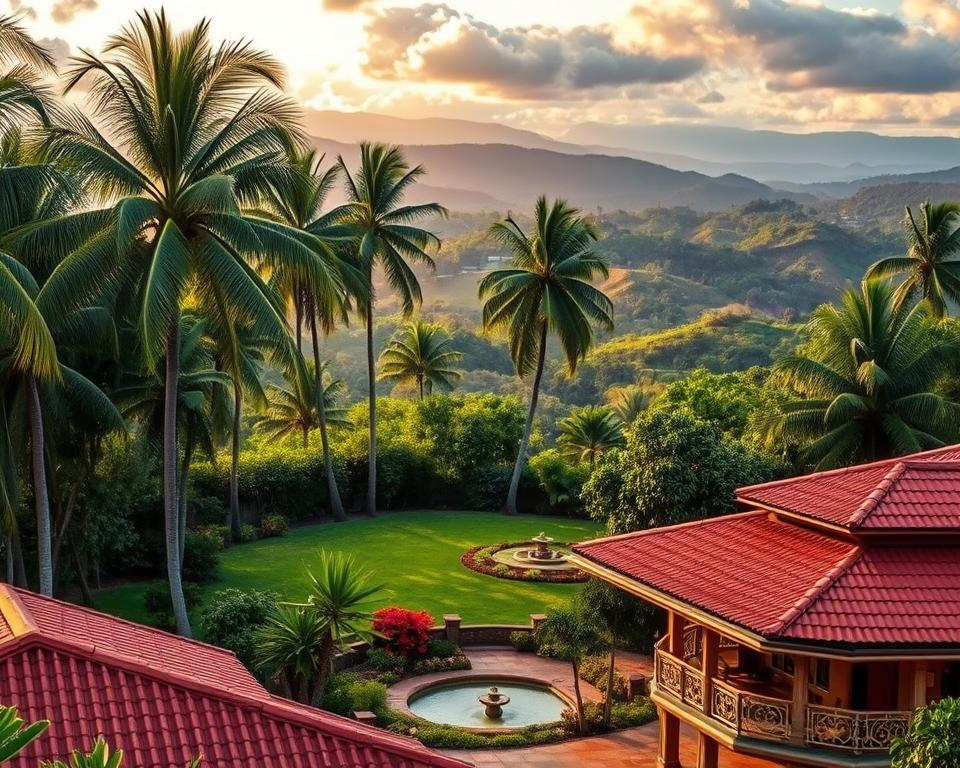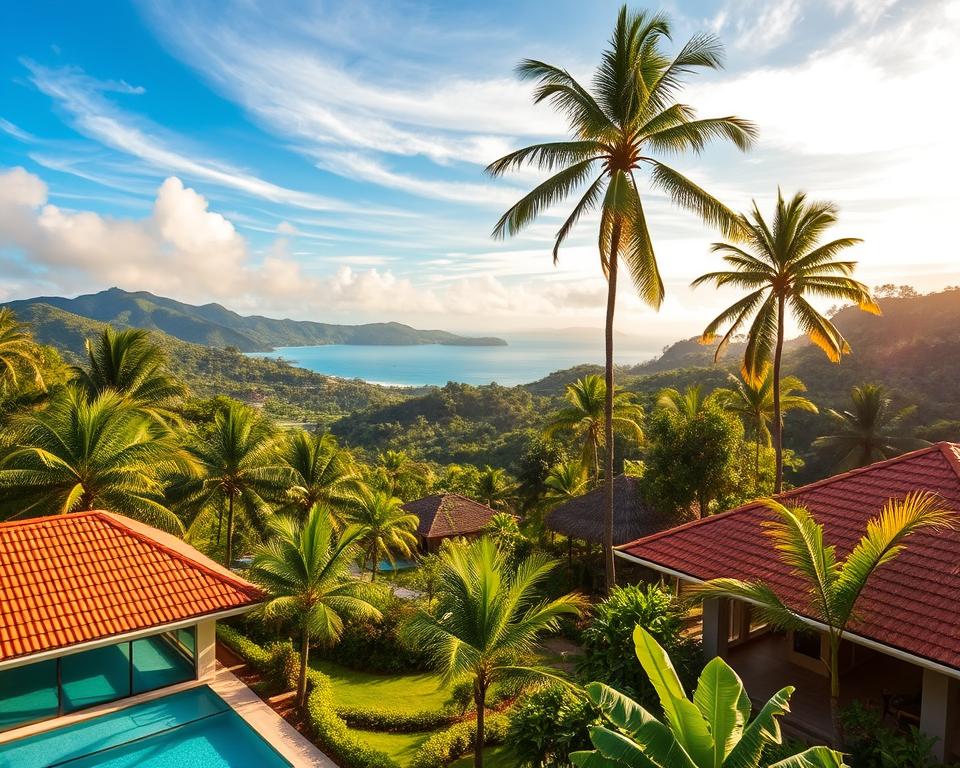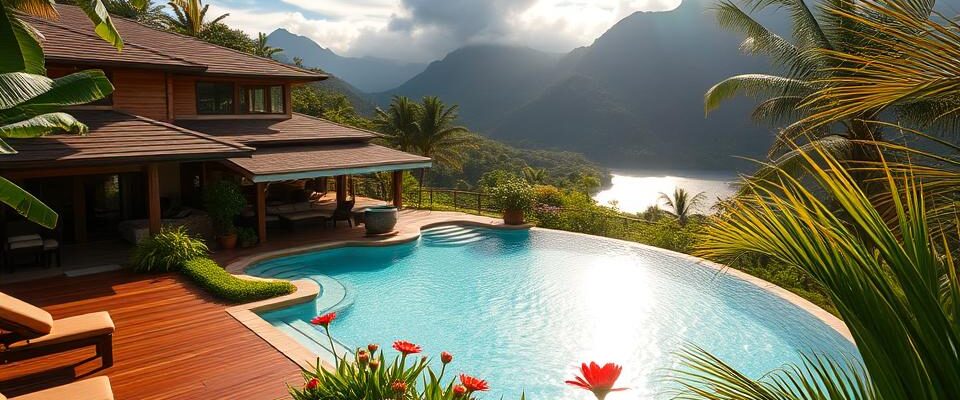Home Buying in Costa Rica: Simplify Your Process with Us
At Gap Real Estate, we simplify the process of buying property in Costa Rica. With over two decades of coast-to-coast experience, we deliver seamless transactions through expert guidance and clear communication.
Costa Rica continues to attract foreign buyers due to its stable political climate, natural beauty, and temperate climate. The property buying process is relatively transparent, but proper guidance is necessary to navigate local regulations.
Our team brings extensive expertise to simplify what can be a complex international property transaction. We will walk you through everything you need to know about purchasing property, from market trends to legal considerations.
The Costa Rican Real Estate Market: What You Need to Know
Costa Rica’s real estate market is thriving, driven by its natural beauty and stable political environment. As a result, many foreigners are investing in property in Costa Rica, drawn by the country’s unique lifestyle and opportunities.
Current Market Trends
The current market trends in Costa Rica are characterized by a strong demand for properties, particularly from foreign buyers. This demand is driven by the country’s commitment to environmental protection, with approximately 25% of its land designated as protected areas, appealing to eco-conscious investors.
- Political stability and a democratic government have created a safe haven for foreign investment.
- The country’s strategic location allows for easy access to major North American cities.
- A growing expatriate community provides a support network for new residents.
Why Costa Rica Attracts Foreign Buyers
Costa Rica attracts foreign buyers due to its unique combination of natural beauty, modern amenities, and a welcoming lifestyle. The country’s “Pura Vida” culture, affordable healthcare, and year-round temperate climate make it an attractive destination for those looking to buy property in Costa Rica.
Foreigners are also drawn to Costa Rica’s strong infrastructure and the ease of buying property, making it an ideal location for investment.
Legal Rights for Foreign Property Buyers in Costa Rica
The process of buying property in Costa Rica can be complex, and understanding the legal rights of foreign buyers is the first step. As foreign investors increasingly look to Costa Rica for property investment, it’s crucial to grasp the legal framework that governs these transactions.
Equal Ownership Rights for Foreigners
In Costa Rica, foreigners have significant rights when it comes to property ownership. Generally, foreigners are granted equal ownership rights as citizens, allowing them to buy and own property outright in most areas. This equality in property rights makes Costa Rica an attractive destination for foreign investment. However, there are specific restrictions and considerations that foreign buyers must be aware of, particularly concerning properties located in coastal areas.

Understanding Maritime Zone Restrictions
One of the critical areas of concern for foreign buyers is the Maritime Zone, which includes the first 200 meters from the high tide line. The first 50 meters are considered public land and cannot be titled. The next 150 meters, known as the Concession Zone, has special rules, limiting foreign ownership to 49% of a Costa Rican corporation’s shares. It’s essential for foreign buyers to work with a knowledgeable real estate attorney to navigate these restrictions and ensure compliance with Costa Rican law. Exceptions exist, such as in areas like Jaco Beach and Los Suenos, where properties may be titled up to the 50-meter line.
Understanding these nuances is vital for foreign buyers to make informed decisions when buying property in Costa Rica. Ensuring a clear title to the land is also a critical step, which involves conducting a thorough title search.
Types of Property Ownership in Costa Rica
Costa Rica offers various property ownership options, each with its unique benefits and restrictions. Understanding these options is crucial for prospective buyers, especially foreigners, to navigate the Costa Rican real estate market effectively.
Fee Simple Title Properties
Fee Simple Title properties in Costa Rica offer outright ownership with minimal restrictions. This type of ownership is ideal for buyers seeking full control over their property. Fee Simple Title properties can be used for various purposes, including residential, commercial, or investment. The ownership is transferred through a straightforward process, and the property can be sold, inherited, or gifted without significant legal hurdles.
One of the key benefits of Fee Simple Title properties is the flexibility they offer. Owners have the freedom to develop or use the property as they see fit, subject to local zoning laws and regulations.
Concession Properties and Restrictions
Concession properties, primarily located in the Maritime Zone, are governed by a leasehold system. The government grants usage rights for a specific period, typically 20 years, with options for renewal. Foreign buyers face restrictions with concession properties, being limited to owning no more than 49% of a Costa Rican corporation that holds the concession rights.
- Concession properties are mainly beachfront properties within the Maritime Zone.
- These properties operate under a leasehold system with government-granted usage rights.
- Foreign ownership is restricted to 49% of a Costa Rican corporation holding concession rights.
- Ongoing compliance with development plans and usage restrictions is required.
- Additional annual canon fees are paid to the local municipality for concession rights.

The Home Buying Process in Costa Rica: Step by Step
The process of buying a home in Costa Rica involves several key steps that foreign buyers should be aware of. Understanding these steps can simplify the transaction and ensure a successful purchase.
Finding and Viewing Properties
Finding the right property in Costa Rica is the first step in the home-buying process. We recommend working with a qualified real estate agent who is familiar with the local market. They can help you find properties that match your criteria, whether you’re looking for a beachfront condo or a mountain retreat.
Making an Offer and Negotiation
Once you’ve found a property you’re interested in, the next step is to make an offer. This involves negotiating the price and terms of the sale with the seller. The normal time period for receipt of the deposit is two weeks, but this can be negotiated based on the buyer’s circumstances.
Due Diligence and Title Search
After your offer is accepted, it’s essential to conduct due diligence on the property. This includes a title search to ensure that the seller has the right to sell the property and that there are no unexpected liens or encumbrances. All funds should be held in a SUGEF or government-registered escrow account for security.
Closing the Deal
The final step in the home buying process is closing the deal. This typically takes place at the attorney’s office, who serves as the notary public for the transaction. Prior to closing, the final purchase price (minus the deposit) must be transferred to the designated escrow account. At closing, the notary will prepare the final transfer deed (escritura) that will be registered with the National Registry to officially transfer ownership.
The closing process in Costa Rica typically includes the presence of the buyer, seller, and their representatives, although powers of attorney can be arranged for absent parties. The process includes payment of all required transfer taxes and registration fees, which are typically split between the buyer and seller. After signing, the notary submits the transfer documents to the National Registry, with the registration process taking approximately 2-4 weeks to complete.
Essential Professional Support for Your Purchase
Buying property in Costa Rica requires more than just a keen eye for a great location; it demands professional expertise. Navigating the country’s real estate market can be challenging, especially for foreign buyers.
Working with a Qualified Real Estate Agent
A qualified real estate agent is indispensable when searching for property in Costa Rica. They provide valuable insights into the local market, help identify suitable properties, and facilitate viewings. When selecting an agent, look for someone with extensive knowledge of the area you’re interested in and a good understanding of the local real estate laws.
An experienced agent will guide you through the initial stages of the property buying process, including making an offer and negotiating the terms of the sale. Their expertise ensures that you’re well-informed and that your interests are represented throughout the transaction.

Hiring a Real Estate Attorney
Citizens, residents, and non-residents alike should hire an attorney for their real estate transactions in Costa Rica. A specialized real estate attorney is essential for ensuring that your property transaction is handled correctly. Here are key considerations when hiring an attorney:
- Ensure your attorney is bilingual (Spanish/English) for clear communication and accurate translation of legal documents.
- Look for an attorney who is also a Notary Public (Notario Público), as they are authorized to register property transfers in Costa Rica’s National Registry.
- Your attorney will conduct thorough title searches, draft and review purchase agreements, and represent your interests throughout the transaction.
- They will verify the seller’s legal authority to sell the property and check for any undisclosed liens or encumbrances.
- Your attorney will also handle the escrow process, ensuring that funds are properly managed and disbursed according to the purchase agreement.
By working with a qualified real estate agent and hiring a reputable real estate attorney, you can ensure a smooth and successful property buying experience in Costa Rica.
Understanding Costs and Taxes When Buying Property
Understanding the full scope of costs and taxes is crucial for anyone looking to buy property in Costa Rica. The process involves various expenses beyond the purchase price, and being informed can help foreign buyers make smart decisions.
Purchase Costs and Closing Fees
When purchasing property, buyers should be aware of the costs associated with the transaction. Working with a SUGEF registered agent can help ensure that foreign buyers are not overcharged, as these agents are knowledgeable about the fair market value of properties. The purchase costs include closing fees, which can vary depending on the complexity of the transaction.
To avoid unexpected expenses, it’s advisable to work with professionals who can guide you through the process. This includes not only real estate agents but also attorneys who specialize in property law.
Property Taxes and Luxury Home Tax
Costa Rica imposes property taxes on real estate, which are generally considered to be relatively low. The luxury home tax may apply to higher-value properties, and understanding these taxes is essential for budgeting. Property taxes are typically based on the property’s value, and rates can vary.
Ongoing Costs of Property Ownership
Beyond the initial purchase and annual taxes, property owners in Costa Rica should budget for several ongoing expenses. Some of these costs include:
- Homeowners association (HOA) fees, which can range from $100 to $500 monthly, depending on the amenities and services provided.
- Property insurance is relatively affordable but may increase with coverage for natural disasters.
- Utility costs, including electricity, water, internet, and cable services.
- Property maintenance can be higher in tropical climates due to humidity, salt air, and rainfall.
- Security services or systems, particularly for properties not occupied year-round.
- Property management fees, typically ranging from 10% to 20% of rental income, are required for those who plan to rent their property.
By understanding these costs, prospective buyers can better plan their investment and ensure that owning property in Costa Rica remains a valuable and enjoyable experience.
Property Registration Options in Costa Rica
When buying property in Costa Rica, you have two primary options for registration. You can choose to register the property in your personal name or through a Costa Rican corporation.
Registering in Your Personal Name
Registering property in your personal name is a straightforward process. You can own property outright in your own name without needing a local partner, except in specific cases like beachfront concession property.
This method is simple and does not require the additional steps involved in setting up a corporation. However, it may not offer the same level of liability protection or tax benefits as corporate ownership.
Creating a Costa Rican Corporation for Property Ownership
Many foreign buyers opt to create a Costa Rican corporation, known as Sociedad Anónima (S.A.) or Sociedad de Responsabilidad Limitada (S.R.L.), to hold their property. This approach provides liability protection, shielding personal assets from claims related to the property.
Corporate ownership also simplifies estate planning, as shares can be transferred more easily than property deeds, avoiding probate processes. However, maintaining a corporation requires annual filing requirements and corporate tax returns.
Top Locations for Property Investment in Costa Rica
When considering property investment in Costa Rica, several top locations stand out for their unique attractions and potential for growth. The country’s diverse regions offer a range of opportunities for investors.
Coastal Areas: Tamarindo and Jaco Beach
Tamarindo and Jaco Beach are among Costa Rica’s most popular coastal destinations, known for their vibrant atmosphere and beautiful beaches. Investing in property in Costa Rica can be lucrative due to high demand from tourists and expats. Prices vary, but the potential for rental income is significant.
Central Valley: San José and Santa Ana
The Central Valley, including San José and Santa Ana, offers a different investment landscape, with a focus on urban and suburban properties. Buying property in Costa Rica in this region can provide a stable investment, with opportunities in both residential and commercial sectors. The area is known for its cultural significance and growing expat communities.
Emerging Markets and Opportunities
Beyond established markets, emerging areas in Costa Rica offer excellent investment potential. The Southern Zone, Caribbean coast, and Northern Plains near Arenal Volcano are seeing growth due to infrastructure improvements and increasing tourist interest. These regions offer lower price entry points and potentially higher appreciation rates, making them attractive for investors looking for value in the country.
Investing in these emerging markets can provide a unique opportunity to be part of Costa Rica’s growth while diversifying your property portfolio. As the country continues to develop, these areas are likely to become increasingly popular, potentially leading to higher returns on investment.
Gap Real Estate: Your Trusted Partner in Costa Rica
Navigating the complexities of Costa Rica’s real estate market is our specialty at Gap Real Estate. With over 20 years of experience, we’ve developed a comprehensive understanding of the home buying process in Costa Rica, ensuring a smooth transaction for our clients.
Our 20+ Years of Coast-to-Coast Expertise
Over our 20+ years in business, we’ve helped hundreds of clients from around the world successfully purchase their dream properties in Costa Rica. Our diverse client base reflects our versatility and expertise, ranging from retirees seeking peaceful beachfront homes to investors developing commercial properties.
Comprehensive Services for Foreign Buyers
We’ve guided clients through complex transactions involving everything from straightforward condominium purchases to multi-million dollar estate acquisitions. Our testimonials consistently highlight our responsiveness, transparency, and ability to smoothly navigate the challenges of international real estate transactions.
Client Success Stories
Many of our first-time buyers have gone on to purchase multiple properties through us, demonstrating the trust and satisfaction our service inspires. Several of our clients have successfully transitioned from vacation home owners to full-time residents with our comprehensive relocation support.
For more information on how Gap Real Estate can assist you in your property purchase in Costa Rica, visit www.gaprealestate.com, call or WhatsApp +(506)4001-6413, or email us at: [email protected].
Conclusion: Making Your Costa Rican Property Dreams a Reality
At Gap Real Estate, we understand that purchasing property in Costa Rica is a significant decision that combines financial investment with lifestyle aspirations. With over two decades of experience, we simplify buying, selling, or investing in Costa Rica, delivering seamless transactions through expert guidance and clear communication.
Purchasing property in Costa Rica offers more than just a financial investment; it represents an investment in a lifestyle that boasts natural beauty, political stability, and a welcoming culture. Working with experienced professionals ensures that acquiring your Costa Rican property is straightforward and secure.
- The current market offers diverse opportunities across regions and property types, from luxury beachfront homes to urban condominiums.
- Understanding the legal framework and regional differences is crucial for making an informed decision.
- With proper planning and professional guidance, foreign buyers can enjoy the same property rights as local citizens.
- Gap Real Estate’s expertise transforms your Costa Rican property dreams into reality, whether you’re seeking a vacation home, retirement residence, or investment property.
Contact us today to begin your Costa Rican property journey with confidence and the support of our experienced team.




